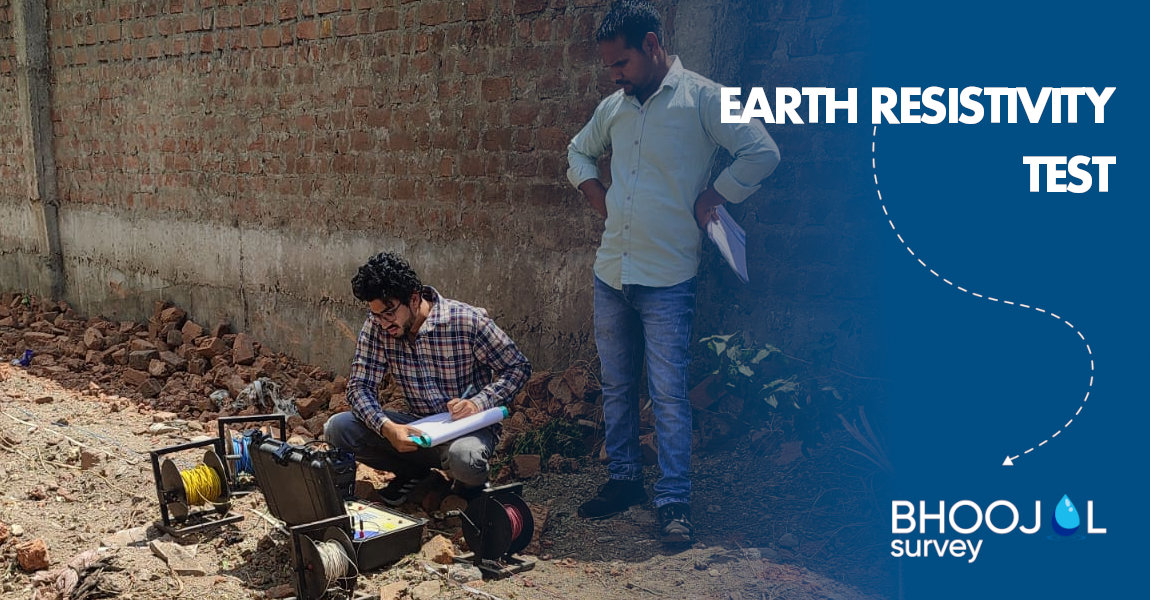Understanding Earth Resistivity Testing: A Comprehensive Guide
- Home
- Blogs
Get Free Expert Assistance

Introduction
Earth resistivity testing is a crucial process in various engineering and environmental applications. This method measures the electrical resistance of soil and is essential for designing grounding systems, assessing soil conditions, and identifying potential hazards. In this blog, we will delve into the importance of earth resistivity testing, the methodologies employed, its applications, and how Bhoojal Survey & Recharging can assist in these endeavors.
What is Earth Resistivity Testing?
Earth resistivity testing involves measuring how easily electrical current can pass through the soil. The resistivity of soil varies based on its composition, moisture content, temperature, and depth. Understanding these variations is essential for designing effective grounding systems, especially in electrical installations.
Why is Earth Resistivity Testing Important?
1. Safety in Electrical Systems: The primary purpose of earth resistivity testing is to ensure that grounding systems can effectively dissipate fault currents. A low-resistivity soil allows for better current flow, reducing the risk of electric shock and equipment damage. 2. Design Optimization: Accurate resistivity measurements help engineers design grounding systems that meet safety standards and operational requirements. This optimization can lead to cost savings by avoiding over-engineering. 3. Environmental Assessments: Earth resistivity testing can also be used to assess soil contamination levels and understand subsurface conditions, which is vital for environmental remediation projects. 4. Geophysical Surveys: The data obtained from resistivity tests can assist in locating geological features, such as bedrock or groundwater aquifers, which are critical for construction and resource extraction projects.
Methods of Earth Resistivity Testing
1. Wenner 4-Point Method
The Wenner 4-Point Method is one of the most widely used techniques for measuring soil resistivity. It involves placing four equally spaced electrodes in a straight line:
• Electrode Arrangement: The outer electrodes inject an electrical current into the ground, while the inner electrodes measure the resulting voltage drop. • Calculation: The resistivity (ρ) is calculated using the formula: ρ=2πaR where R is the measured resistance, and a is the distance between adjacent electrodes.
This method is favored for its simplicity and effectiveness in various soil conditions.
2. Schlumberger Method
The Schlumberger Method is another popular technique that uses a similar electrode arrangement but with varying distances between the electrodes:
• Configuration: This method typically involves two current electrodes placed farther apart than the potential electrodes. • Applications: It’s particularly useful for deeper investigations and mapping subsurface geological formations.
3. Dipole-Dipole Method
The Dipole-Dipole Method involves pairs of electrodes that are used to measure potential differences at varying distances:
• Flexibility: This method allows for more detailed subsurface profiling and can be adapted to different site conditions. • Data Interpretation: The results can be used to create detailed models of subsurface resistivity distributions.
4. Other Methods
Other methods include the Two-Electrode Method, which is simpler but less accurate for heterogeneous soils, and advanced techniques like Time-Domain Electromagnetics (TDEM) that provide high-resolution data over larger areas.
Factors Affecting Soil Resistivity
• Soil Composition: Different types of soil (clay, sand, silt) have varying resistivities due to their mineral content. • Moisture Content: Wet soils generally have lower resistivity compared to dry soils because water conducts electricity better than dry materials. • Temperature: Soil resistivity decreases with increasing temperature as thermal energy facilitates ion movement. • Depth: Resistivity often changes with depth; typically, deeper layers have higher moisture content leading to lower resistivities.
Applications of Earth Resistivity Testing
1. Electrical Grounding Design
In environmental assessments, earth resistivity testing helps identify contamination levels: Geotechnical engineers use resistivity data to assess soil stability:
At Bhoojal Survey & Recharging, we specialize in conducting comprehensive earth resistivity tests using state-of-the-art equipment and methodologies: For more information about our services or to schedule a consultation, visit our website contact pageBhoojal Survey & Recharging. Earth resistivity testing is an indispensable tool across multiple industries, providing critical data necessary for safe and effective design practices. By understanding how soil resists electrical flow, engineers can optimize grounding systems, assess environmental impacts, and manage water resources effectively. With Bhoojal Survey & Recharging's expertise in conducting thorough earth resistivity tests, stakeholders can make informed decisions that enhance safety and efficiency in their projects.
How Bhoojal Survey & Recharging Can Help
Conclusion
